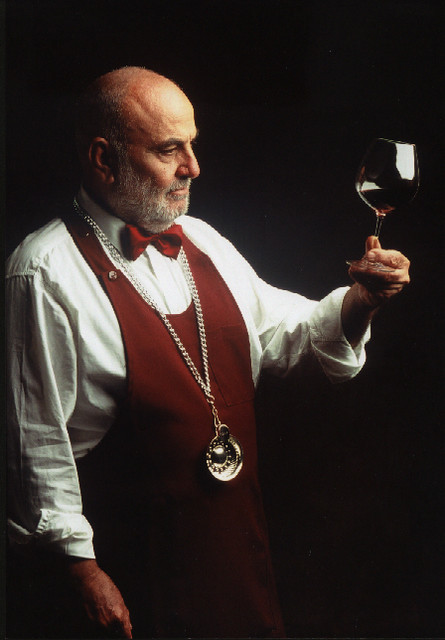
Becoming a whiskey sommelier is a dream job for many people who love whiskey and want to turn their passion into a profession. A whiskey sommelier is a professional who has extensive knowledge of whiskey, including its history, production, and appreciation. They use their expertise to recommend, pair, and sell whiskey to customers in restaurants, bars, and other establishments.
Becoming a whiskey sommelier requires a combination of education, experience, and certification. Many organizations offer certification programs that teach the skills and knowledge required to become a whiskey sommelier. These programs include both classroom instruction and hands-on training, allowing students to develop their skills and knowledge in a practical setting. With the right combination of education, experience, and certification, anyone can become a successful whiskey sommelier.
Table of Contents
The Role of a Whiskey Sommelier
Responsibilities
A whiskey sommelier is a professional who is responsible for guiding and educating customers in selecting and enjoying different varieties of whiskey. They are knowledgeable and passionate about the world of whiskey and possess a deep understanding of the history, production, flavors, and nuances of whiskey.
A whiskey sommelier’s responsibilities include offering recommendations on whiskies suited to customers’ tastes, whiskey, and food pairings, and engaging as many senses as possible to enhance customers’ whiskey-drinking experience. They also provide information about the distillation process, aging, and bottling of whiskey.
Skill Set
Being a whiskey sommelier requires a specific skill set. They must have a keen sense of smell and taste and be able to distinguish the subtle differences between various types of whiskey. They must also be able to communicate effectively with customers and have a deep understanding of the whiskey-making process.
Whiskey sommeliers must be able to work in a fast-paced environment and be able to multitask effectively. They must also be able to work well under pressure and have excellent time management skills.
Education and Certification
Becoming a whiskey sommelier requires a combination of education and certification. Here are the two main components of becoming a certified whiskey sommelier:
Whiskey Education Programs
Whiskey education programs provide a comprehensive understanding of whiskey, including its history, production, and tasting. These programs are designed for both beginners and experienced professionals, and they offer a range of courses to suit different levels of expertise.
Certification Bodies
Certification bodies provide the official certification for whiskey sommeliers. These bodies typically require candidates to complete a certain level of whiskey education before taking the certification exam.
Some popular certification bodies include:
- Whiskey Masters: This organization offers certification for whiskey sommeliers, including the Certified Bourbon Professional (CBP), Certified Scotch Professional (CSP), and Certified Whiskey Specialist (CWS) programs. These programs require candidates to complete a certain level of whiskey education before taking the certification exam.
- Society of Wine Educators: This organization offers the Certified Specialist of Spirits (CSS) certification, which covers a range of spirits, including whiskey. Candidates must complete a certain level of whiskey education before taking the certification exam.
Becoming a certified whiskey sommelier requires a combination of education and certification. By completing a whiskey education program and obtaining certification from a recognized body, individuals can demonstrate their expertise and knowledge in the field of whiskey tasting and appreciation.
 photo credit: live.staticflickr.com
photo credit: live.staticflickr.com
Gaining Experience
Becoming a whiskey sommelier requires a combination of knowledge and experience. Here are some ways to gain experience in the field:
Tasting Techniques
One of the most important skills for a whiskey sommelier is the ability to taste and evaluate different types of whiskey. This requires practice and a keen sense of smell and taste. Aspiring sommeliers can attend whiskey tastings and events to hone their skills. They can also practice on their own by purchasing different types of whiskey and tasting them side by side.
To develop their tasting skills, sommeliers should pay attention to the appearance, aroma, flavor, and finish of each whiskey. They can also use a tasting sheet to keep track of their observations and notes.
Industry Networking
Networking is an important part of building a career as a whiskey sommelier. Aspiring sommeliers can attend industry events, join whiskey clubs, and connect with other professionals in the field. They can also reach out to local whiskey bars and distilleries to learn more about the industry and gain experience.
Networking can also lead to job opportunities and mentorship. By building relationships with other professionals in the field, sommeliers can gain valuable insights and advice on how to advance their careers.
Work Experience
Work experience is essential for becoming a whiskey sommelier. Aspiring sommeliers can gain experience by working in whiskey bars, distilleries, and other related industries. This can provide valuable hands-on experience and help sommeliers develop their tasting skills and knowledge of the industry.
Sommeliers can also pursue formal training and certification programs to gain additional experience and credentials. These programs can provide a structured curriculum and hands-on training in tasting, evaluating, and serving different types of whiskey.
Building a Personal Brand
Becoming a whiskey sommelier requires not only knowledge and expertise but also a strong personal brand. A personal brand is the image and reputation that a person presents to the world, and it is essential for any sommelier who wants to stand out in a competitive industry.
Social Media Presence
One way to build a personal brand is to develop a strong social media presence. Platforms like Instagram, Twitter, and LinkedIn can be used to showcase expertise and connect with others in the industry. A sommelier can use social media to post photos and reviews of whiskies, share industry news and events, and engage with followers. It is important to maintain a professional image on social media and to interact thoughtfully with others in the community.
Blogging and Writing
Another way to build a personal brand is through blogging and writing. A sommelier can write articles and blog posts about whiskies, tastings, and industry trends. This can help establish expertise and demonstrate a passion for the craft. It is important to write clearly and concisely and to use correct grammar and spelling. A sommelier can also contribute articles to industry publications or create their own website to showcase their work.
Career Advancement
Becoming a whiskey sommelier is a great achievement, but it’s just the beginning of a career in the field. There are many opportunities for career advancement, including continuing education and specialization areas.
Continuing Education
One way to advance a career as a whiskey sommelier is to continue your education. This can include attending conferences, workshops, and seminars to stay up-to-date with the latest trends and techniques in the industry. Additionally, courses and certification programs can help sommeliers gain new skills and knowledge to enhance their careers.
Some of the popular courses and certification programs for whiskey sommeliers include the Certified Specialist of Spirits (CSS) program offered by the Society of Wine Educators and the Certified Whiskey Ambassador program offered by the Whiskey Ambassador Institute.
Specialization Areas
Another way to advance a career as a whiskey sommelier is to specialize in a particular area of the industry. Some specialization areas include:
- Brand Ambassador: A brand ambassador represents a particular whiskey brand and promotes it to consumers through tastings, events, and other marketing efforts.
- Master Blender: A master blender is responsible for creating a unique blend of whiskeys that meets a particular flavor profile. This requires a deep understanding of the characteristics of different whiskeys and the ability to blend them in a way that creates a unique and balanced flavor.
- Educator: An educator teaches others about whiskey through classes, workshops, and other educational events. This requires a deep knowledge of whiskey history, production, and tasting techniques.
Frequently Asked Questions
What certifications are necessary to be recognized as a whiskey sommelier?
To be recognized as a whiskey sommelier, one must obtain a certification from a reputable organization. The two most well-known organizations that offer certification programs for whiskey sommeliers are the Council of Whiskey Masters and the Whiskey Marketing School. These programs typically involve rigorous training and testing, covering topics such as whiskey production, history, and tasting techniques.
How does one obtain a Whiskey Sommelier Medallion?
The Whiskey Sommelier Medallion is a prestigious award given to certified whiskey sommeliers who have demonstrated exceptional knowledge and skill in the field. To obtain this award, one must first complete a certification program from a reputable organization, such as the Council of Whiskey Masters or the Whiskey Marketing School. After completing the program, one must then pass a rigorous examination to demonstrate their knowledge and skills in whiskey tasting and evaluation.
What is the expected salary range for a professional whiskey taster?
The salary range for a professional whiskey taster can vary widely depending on factors such as experience, location, and job title. According to Glassdoor, the average salary for a Head Sommelier in the United States is around $98,000 per year, with some top earners making upwards of $180,000 per year.
What are the typical job opportunities available for a certified whiskey sommelier?
Certified whiskey sommeliers can find employment in a variety of settings, including restaurants, bars, hotels, and distilleries. Some may also work as consultants or educators, teaching others about the art and science of whiskey tasting and evaluation. Job titles for certified whiskey sommeliers may include Head Sommelier, Beverage Director, or Whiskey Specialist.
What is the equivalent term for a whiskey expert as ‘sommelier’ is to wine?
The equivalent term for a whiskey expert is a “whiskey sommelier.” Just as a sommelier is a trained and knowledgeable wine professional, a whiskey sommelier is a trained and knowledgeable whiskey professional who specializes in the tasting and evaluation of whiskey.
Conclusion
Becoming a whiskey sommelier is not an easy task and requires a lot of dedication, hard work, and passion for whiskey. The journey to becoming a whiskey sommelier involves learning about the different types of whiskey, their production processes, and the history and culture of whiskey. By following the steps outlined in this article and continuing to learn and develop their skills, anyone can become a knowledgeable and passionate whiskey sommelier.
Related Posts
If you’re interested in becoming a whiskey sommelier, it’s likely that you’re also interested in learning more about whiskey in general. Luckily, there are plenty of resources available online that can help you expand your knowledge and appreciation of this popular spirit. Here are a few related posts that you might find helpful:
- How to Drink Uncle Nearest Whiskey: A Clear Guide: This post provides a detailed guide on how to enjoy Uncle Nearest Whiskey, a premium brand of American whiskey that has been gaining popularity in recent years.
- How to Enjoy Whiskey Without the Burn: Tips and Tricks: If you’re new to whiskey, you might find it difficult to drink due to the strong, smoky flavor. This post offers some tips and tricks for enjoying whiskey without the burn.
- How to Make Whiskey Taste Better: Expert Tips and Tricks: If you’re looking to expand your palate and try new types of whiskey, this post offers some expert tips and tricks for making whiskey taste better.
- What Color is Bourbon?: Bourbon is a popular type of whiskey that is known for its distinctive color. This post explains what gives bourbon its characteristic hue and how it differs from other types of whiskey.
- Bourbon Display Shelf Ideas: Creative Ways to Showcase Your Collection: If you’re a bourbon enthusiast, you might be looking for creative ways to display your collection. This post offers some ideas for how to showcase your bourbon in style.



